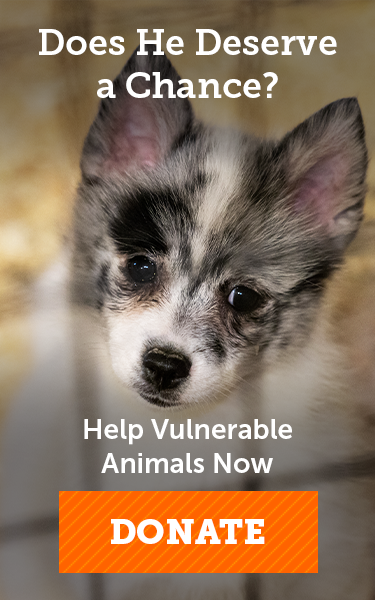
Believe It Or Not, It's Poisonous to Pets! The APCC Shares Poison Prevention Tips
Did you miss our Poison Prevention Twitter chat on Wednesday? Don’t worry! The ASPCA Animal Poison Control Center (APCC) wants to make sure that their lifesaving information stays right at your fingertips, so they shared these 10 tips for keeping your pet safe from poisoning:
1. Be a Cautious Cleaner. Some cleaning products can cause burns in your pet’s mouth or esophagus, while others can lead to liver or kidney damage. To keep your pet safe, store all cleaning solutions out of their reach and keep animals out of the way while cleaning and rinsing. A dog may choose to drink old dirty mop water over fresh clean water!
2. Bait-er Safe Than Sorry! Place baits for rats, mice, ants, roaches, etc. in areas inaccessible to your pets. Some baits contain ingredients like peanut butter that may attract a pet. Don’t forget that some pests—like mice and rats—may move bait into an area your pet can easily reach.
3. The “Don’t Even Try It” Diet: Never give human food to your pet without checking with your veterinarian. Grapes can cause kidney failure in dogs. If too much garlic or onion is ingested, red blood cells can be destroyed, causing anemia.
Twitter Tips: Avocado can cause heart failure in birds, and macadamia nuts cause temporary hind limb paralysis in dogs.
4. Steer Toward Safety: Automotive products such as gasoline, oil, antifreeze, tire cleaners and windshield antifreeze should be kept where pets do not have access. Clean up spills immediately, even if you don’t think a pet would go in the garage.
5. Rx Only. Pets metabolize and eliminate some medications differently than humans. Only give your pet medication recommended by your veterinarian. The wrong medication can cause severe illness or even death.
6. Prudent Planting. Identify plants in your house and yard and remove those that can cause severe or life-threatening clinical signs (a few examples include oleander, yew, sago palms and lilies). Check to see if plants are toxic before landscaping.
Twitter Tips: Cocoa Bean Mulch can cause vomiting and diarrhea in pets. Reference our complete database of toxic plants for more information.
7. The Pest Test. Discuss flea and tick control with your primary care veterinarian. Always read the label before applying a product to your pet and follow the directions. Never apply products to a species if the product is not labeled for that species. If you have both dogs and cats, double check that you are applying the correct product to the correct animal every time.
8. Be Home Aware. When work is being done at your home (like pest control, cleaning or painting), be sure you know what products are being used. Knowing the correct name of products (or even better, the EPA registration number) will assure that your pet is receiving the right medical advice should ingestion occur.
9. Pill Protection. Keep all prescriptions and medications out of your pet’s reach, preferably in closed cabinets. Keep your pet’s medications in an area away from the family’s medications. This will help prevent a pet accidentally ingesting a human’s medication (and vice-versa!).
Twitter Tip: Human medications are the #1 cause of pet toxicity in America. The APCC handled nearly 25,000 cases regarding medication poisonings last year!
10. Be App-solutely Sure. Download the free ASPCA APCC mobile app for information about the toxicity of hundreds of products. The app provides pictures for easy identification, and tools like our “Chocolate Wheel” can calculate the severity of toxicity depending on factors like your pet’s weight and the amount ingested.
Stay up-to-date on animal care and welfare by following the ASPCA on Twitter today.
